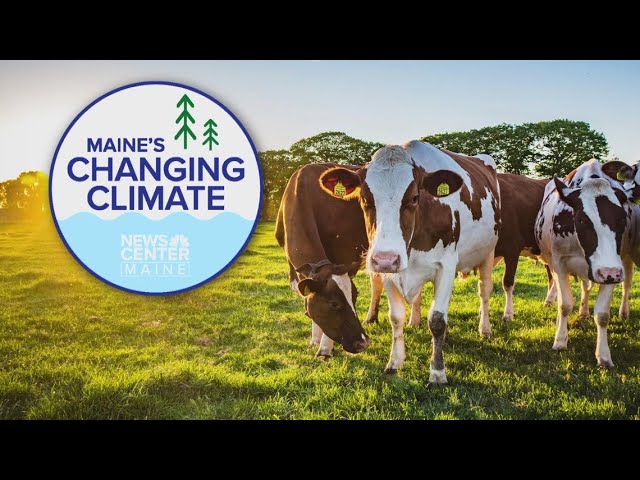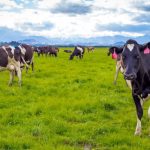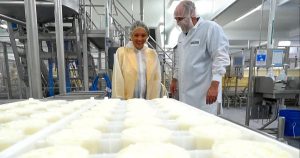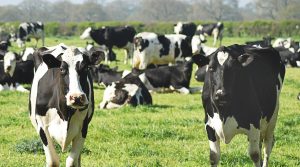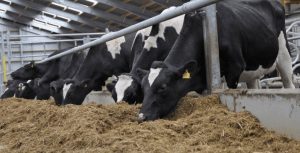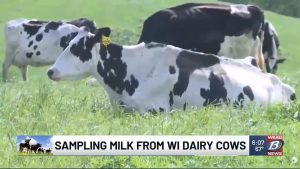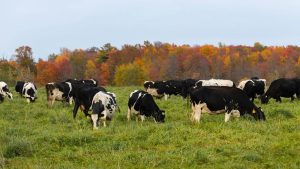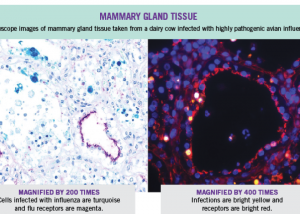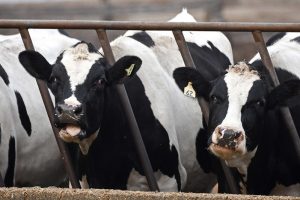
Maine’s farms produce a wide variety of goods, and some dairy farms in Clinton are adding another unexpected product to the list: renewable natural gas.
Dairy cows in Clinton are known for producing milk. They also generate thousands of gallons of manure each day. That waste is now being converted into biogas, thanks to Peaks Renewables’ natural gas digester.
Tim Wade, the plant manager for Peaks Renewables, explained how the process works.
“That’s 8,000 gallons of manure coming from one of our partner farms,” Wade said. “Our process is 100 percent renewable, so that’s hands and feet above the typical process of drilling and extracting.”
As manure decomposes, it releases a biogas that is approximately 40 to 60 percent methane. This gas is then refined and supplied to Summit Natural Gas of Maine, which distributes it to local homes and businesses.
“We’ve been able to produce—for almost the last two years now—about 50 percent of Summit Gas of Maine’s residential demand from this facility,” Wade explained.
With growing success, Peaks Renewables is expanding its operations by partnering with Caverly Dairy Farm, located just down the road. The expansion includes doubling the digester’s storage capacity to accommodate even more manure.
“It’s a win for the environment, it’s a win for Peaks, and it’s a win for us,” Neal Caverly, owner of Caverly Farms, said.
Currently, Caverly and his farmhands spend a significant amount of time collecting and transporting manure from more than a thousand cows.
“Right now, we’re spreading and moving manure daily,” Caverly explained.
The digester will streamline this process while also producing valuable byproducts, such as nutrient-rich fertilizer that can be used to grow crops to feed the cattle.
“It’s just going to be fewer trips across the fields and more concentrated nutrients,” Caverly explained. “It even takes the smell out of the manure.”
For Barney Wright of The Wright Place Farm, which has partnered with Peaks Renewables for over two years, one of the most valuable parts of the relationship has been the fiber cow bedding that’s also created from the digesting process.
“We’re trying to embrace more renewable sources instead of sourcing everything out,” Wright said.
A shift toward more sustainable farming methods is something Wright not only wants to be a part of but a lifestyle he wants to pass on through his family farm for years to come.
“Sort of setting up the next generation is what my mind was,” he added.
Beyond the environmental and economic advantages, one unexpected benefit of the collaboration has been the relationships formed between farmers and Peaks Renewables.
“If anything, it’s built a closer relationship where we’re connecting closer verbally,” Wright said.
Officials at Peaks Renewables say they aim to complete all expansions to the digester by May 2025 and are also working on a project to take the carbon dioxide produced from the digester and blend it with hydrogen to create a synthetic methane.
You can now read the most important #news on #eDairyNews #Whatsapp channels!!!
🇺🇸 eDairy News INGLÊS: https://whatsapp.com/channel/0029VaKsjzGDTkJyIN6hcP1K
